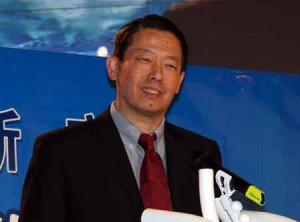 In China, several political bodies are in charge of Internet content control. At the highest level, there is the Central Propaganda Department, which ensures that media and cultural content follows the official line as mandated by the CCP. Then there is the State Council Information Office (SCIO), which has established “Internet Affairs Bureau” to oversee all Websites that publish news, including the official sites of news organizations as well as independent sites that post news content.
In China, several political bodies are in charge of Internet content control. At the highest level, there is the Central Propaganda Department, which ensures that media and cultural content follows the official line as mandated by the CCP. Then there is the State Council Information Office (SCIO), which has established “Internet Affairs Bureau” to oversee all Websites that publish news, including the official sites of news organizations as well as independent sites that post news content.
Recently, the ninth session of the 2009 SCIO Internet News Work Training Session just finished in Beijing. All participants are top editors and managers of major news websites in China. The trainers include:
* Li Wufeng, Bureau Chief of the State Council Information Office Internet Affairs Bureau
* Peng Bo, Deputy Chief of the State Council Information Office Internet Affairs Bureau
* Professor Zhu Feng, Peking University School of International Relations
* Song Fufan, Director of the Ideology and Political Education Teaching and Research Section of the Marxist Theory Research Department at the Central Party School of the Communist Party of China
* Zhai Huisheng, Party Secretary of the All China Federation of Working Journalists
* Professor Gao Gang, Secretary of the Party Committee of Renmin University School of Journalism and Communication
* Xia Chenghua, Deputy Chief of the Central Government Stability Preservation Leading Group Office
* Zhou Xisheng, Deputy Chief of Xinhua News Agency, Director-General of Xinhua News Agency
Soon after the training finished, one of the participants released her notes from this session online. CDT has translated the entire collection of notes from this 2009 SCIO Internet News Work training session; in total there are eight articles, which we will publish consecutively in coming days. CDT would like to thank the translator, who wishes to remain anonymous. Read the previous installments of notes. What follows is the sixth installment:
Professor Gao Gang, Secretary of the Party Committee of Renmin University School of Journalism and Communication
Content of the lesson:
A. First, explain the changes in humankind’s information environment by using the examples of Google Earth, Renlifang* etc. Explain the importance of Internet information.
B. What is “the news?” The news is information that gets derailed from the normal course of events; it is information that breaks from one’s normal expectations. The news is a type of information; people need this kind of information to direct their lives. The news will always be based on a concept of contrast.
C. Suggestions for internet news providers: fully understand the country’s situation, master the skills and science of reporting, improve the depth of information provided.
D. Important points on the language used in news reporting
i. Use concrete nouns; don’t use general words. For example, if you know that the news story involves apples, then definitely don’t write “fruit.”
ii. Use adjectives carefully. Don’t use adverbs. It’s best not to use phrases such as “deeply touched.”
iii. Use action verbs, make the place described come to life.
E. It is very important to specify the source of the news item.
Unless it is common sense, one must clarify the source of information that one does not see with one’s own eyes. Do not use anonymous sources. If unclear about the veracity of news information, one must find at least two impartial sources to check the veracity of the information.《互联网信息环境中传播效果的控制》
人民大学新闻学院党委书记、教授高钢
课程内容:
一、首先通过谷歌地球、微软人立方等说明人类信息传播环境的变化。说明网络信息的重要性。
二、什么是新闻?新闻是从正常事件流程中脱轨而出的信息,是人们正常预期的中断。新闻是一种信息,人们需要这种信息对生活进行指导。新闻永远是一种相对的概念。
三、对网络新闻实务的建议:全面了解国情、掌握科学的新闻技术、强化提供深度信息的意识。
四、新闻用语的注意要点:
1、使用具体名词,不使用概括性词语。如,已知新闻里有苹果,那就绝对不要写水果。
2、谨慎使用形容词,不使用副词。“深深地”感动这样的说法最好不要用。
3、使用行为动词,使描述的场面生动。
五、交待新闻来源很重要。
除非属于常识,否则必须交待你没有亲眼看到的东西的出处。不使用匿名来源。对新闻的真实性不确定,必须找到与新闻事件无利害关系的两个以上信息来源对新闻进行核实。
* Renlifang is a search engine that allows users to navigate through search results and explore relationships between entities.
[To be continued]







